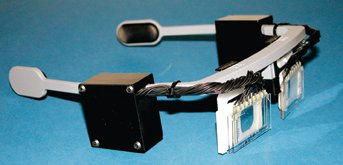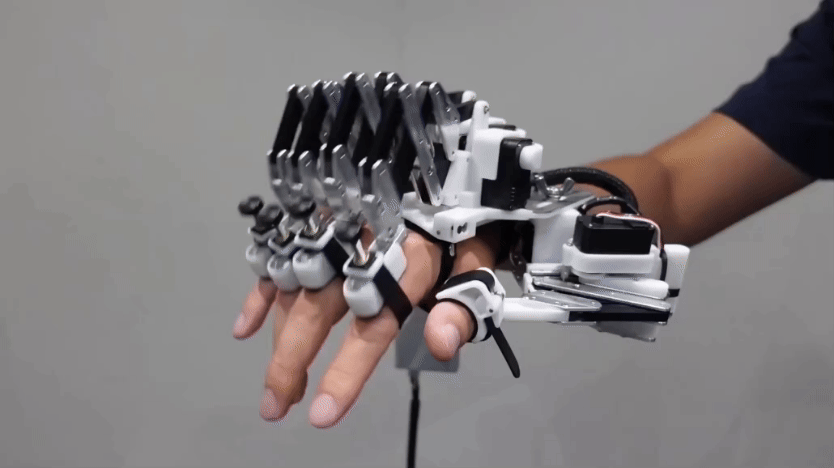Switchable Lenses Improve Vision
Special lenses that automatically focus can help people wearing eyeglasses see more clearly.
By Emily Sohn
Some people have the impression that wearing eyeglasses can make you look smarter. Someday, your glasses themselves might actually be smarter.
Scientists are developing “smart” lenses that sense where your eyes are looking and automatically focus to help you see more clearly.
 |
|
Electric signals from microchips in the black boxes attached to these experimental eyeglasses change the focus setting to improve vision.
|
| Guoqiang Li et al./Proceedings of the National Academy of Sciences |
The main market for the glasses is adults older than 45—perhaps your parents or grandparents. At this point in life, most people start to get worse at seeing things that are close to them, such as books and computer screens.
When the decline begins, people usually start wearing reading glasses. Or, they get bifocals, which have divided lenses—a top part for seeing far and a bottom part for seeing near. Some kids with vision problems have to wear such glasses, too.
University researchers are working with a company called PixelOptics, in Roanoke, Va., to replace bifocals with electric lenses that can switch quickly from one type of focus to another.
“You don’t have just the bottom half of your eyeglasses” for close vision, says electrical engineer David L. Mathine of the University of Arizona in Tucson. He’s one of the inventors. “You get the whole view,” he says.
Each lens is made from two layers, and each layer is made up of two sheets of glass, with a thin layer of fluid sandwiched between the sheets. The fluid contains a transparent type of material called a liquid crystal, which is made of molecules that are shaped like rods. To change a lens’ focus, scientists apply electricity to the inner surface of one of the glass sheets in each layer.
In response to the electricity, the crystal rods rotate. Their direction determines how quickly light passes through the liquid-crystal layer. The process allows the material to focus light so that a crisp image forms inside the viewer’s eyes.
 |
|
An image is out of focus when a special, electrically controlled lens is off (left) but clear when the lens is on (right).
|
| Guoqiang Li et al./Proceedings of the National Academy of Sciences |
Scientists had made similar, electrically controlled lenses before, but these earlier lenses couldn’t focus well enough or change focus quickly enough to be useful in eyeglasses, the inventors say.
PixelOptics has announced that it also plans to make a version of the glasses that will help people achieve extrasharp vision—even better than normal 20/20 eyesight.—E. Sohn
Going Deeper:
Weiss, Peter. 2006. Switch-a-vision: Electric spectacles could aid aging eyes. Science News 169(April 22):243-244. Available at http://www.sciencenews.org/articles/20060422/fob2.asp .
You can learn more about smart glasses at www.gravitysedge.com/pixeloptics/ (PixelOptics).







